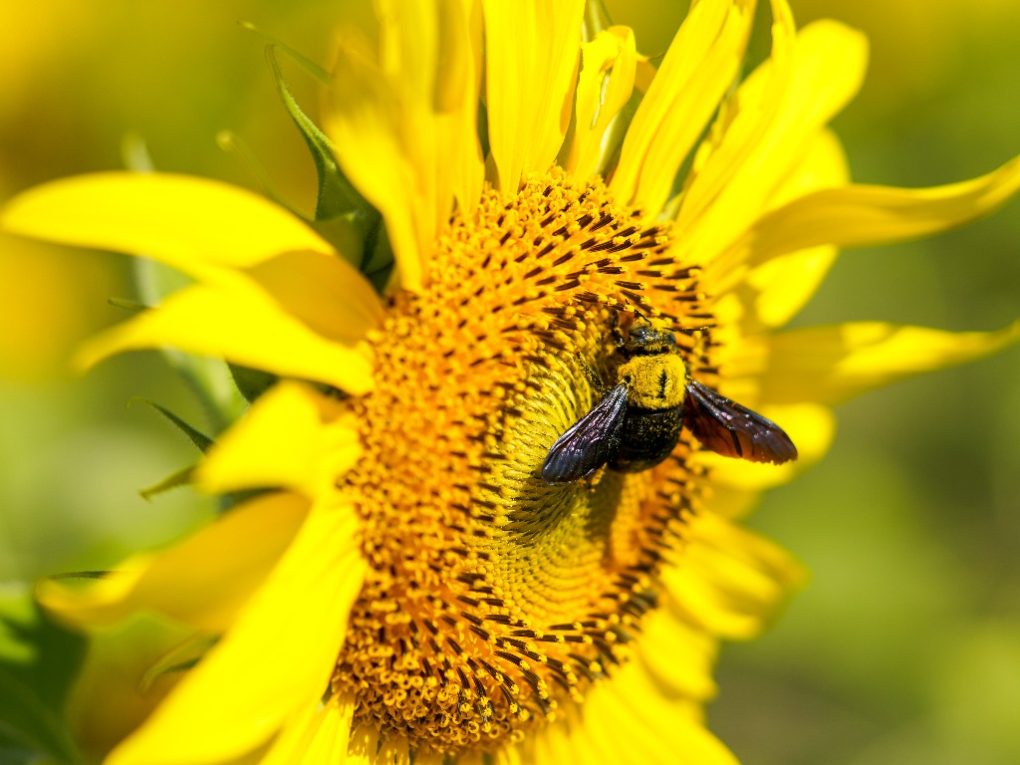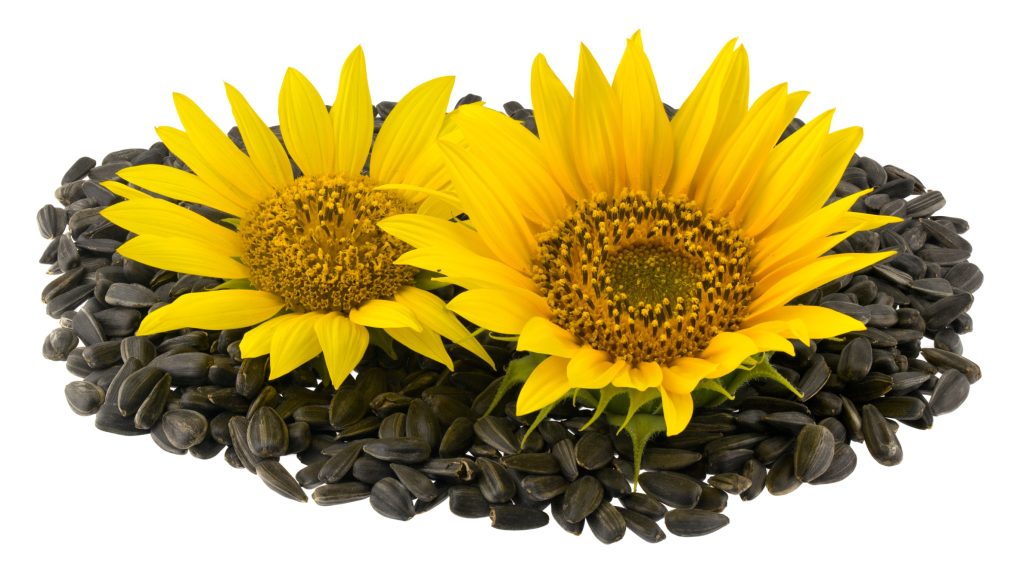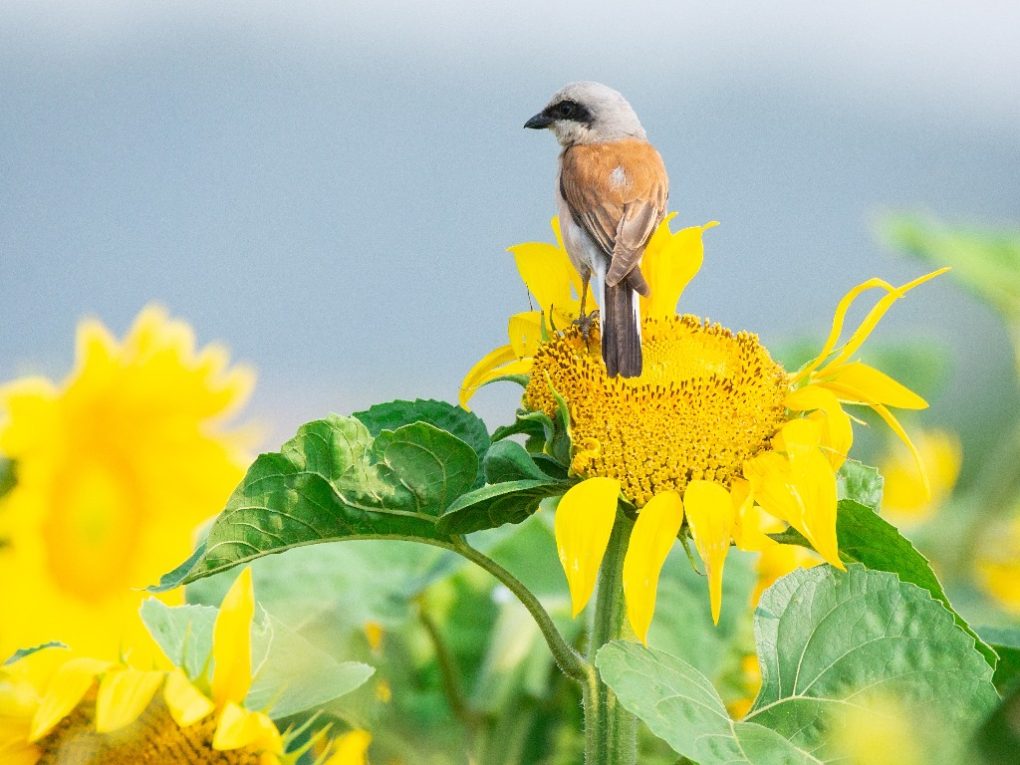Do Sunflowers Have Pollen: What You Need to Know About Sunflower’s Pollination
Yes, sunflowers do have pollen. Sunflowers are known to be prolific pollen producers, making them an excellent food source for bees, butterflies, and other pollinators. The large, showy flower heads of sunflowers are composed of numerous small flowers called florets. Each floret contains both male and female reproductive parts, with the male part producing pollen.

Table of Contents
Ways How Pollen Affect Sunflowers
Pollen plays a crucial role in the reproduction and growth of flowers, confirmed by Science Direct. When the male reproductive cells in the pollen of a sunflower are transferred to the female reproductive cells in another sunflower, it triggers the process of fertilization, leading to the production of seeds. This process is critical for the survival and continuation of the species.
In addition to reproduction, pollen can also impact the growth and health of sunflowers. For example, more pollen transfer can produce better seeds and smaller flower heads. Pollen can also be a factor in developing sunflower diseases, as it can serve as a medium for fungal and bacterial growth.
However, excessive pollen can also be a problem for sunflowers, particularly for individuals who suffer from allergies. For example, the wind and bees can spread pollen over great distances, leading to allergic reactions in sensitive individuals.
Benefits of Pollinated Sunflowers
Seed Production
Sunflowers are an important source of seeds that can be used for food, oil, and other products. Pollination is a critical step in the seed production process for sunflowers.
The reproductive cycle of sunflowers begins with the formation of flowers. Each flower consists of both male and female reproductive structures. The male structures produce pollen, while the female structures contain ovules that the pollen can fertilize.
Pollination occurs when the pollen from the male structures is transferred to the female structures, either by wind or by pollinators such as bees, butterflies, and other insects. Once the ovules are fertilized, they develop into seeds.
Sunflower seeds are rich in protein, healthy fats, fiber, vitamins, and minerals. They can be eaten raw or roasted and used in various culinary applications, including as a snack, baking, and topping for salads and other dishes.

Biodiversity
Sunflowers are an important plant species in terms of biodiversity. They are native to North America but have been introduced and cultivated worldwide for their beauty, usefulness, and ecological benefits.
Sunflowers are part of the Asteraceae family, one of the largest plant families, with over 23,000 species. This family includes a wide range of plants, including herbs, shrubs, and trees, and is characterized by its composite flower heads comprising many individual flowers.
In their native habitat, sunflowers play an important role in supporting biodiversity. They provide habitat and food for various animals, including birds, bees, butterflies, and insects. Sunflowers are also an important food source for many species of birds, including finches, sparrows, and chickadees.
Wildlife Habitat
Sunflowers can provide valuable wildlife habitats, particularly for birds and insects. The sunflowers’ seeds are a rich food source for birds, such as finches, jays, and mourning doves. The flower heads also attract various insects, including bees, butterflies, and moths, which can help pollinate other plants in the area.
Additionally, the tall stalks of sunflowers can provide shelter and nesting sites for various small mammals and birds. Overall, sunflowers can support biodiversity in agricultural and natural landscapes.
Improved Crop Yields
Sunflowers can also have a positive impact on crop yields in some cases. This is because sunflowers can be used as a rotational crop in fields, helping to break up soil compaction and improve soil health. Sunflowers also have a unique root system that can help absorb excess nutrients and prevent nutrient leaching, leading to more efficient use of fertilizers and reduced environmental impacts.
Additionally, sunflowers have allelopathic effects, which means they can release chemicals that suppress the growth of certain weeds and pests, helping to improve overall crop health and yield.
Ecological Balance
Sunflowers can contribute to the ecological balance of a given area by providing food and habitat for various insects, birds, and other wildlife. For example, the nectar and pollen from sunflowers can attract bees, butterflies, and other beneficial insects, which can help pollinate other plants in the area.

Sunflowers can also provide food for birds, and other wildlife, either through the seeds or the insects attracted to the plants. By supporting diverse plant and animal communities, sunflowers can help to maintain a healthy ecosystem and promote ecological balance.
Benefits of Pollen-Free Sunflowers?
Allergy Relief
One of the main benefits of pollen-free sunflowers is that they can provide allergy relief for people who suffer from pollen allergies. For example, sunflower pollen can cause allergic reactions in some individuals, and pollen-free sunflowers eliminate this problem.
These varieties produce little to no pollen, making them a good choice for those who want to enjoy the beauty of sunflowers without the allergy symptoms. Additionally, pollen-free sunflowers can be a good option for people who work or live in areas where pollen can be a problem, such as hospitals or schools.
Less Mess
When traditional sunflowers drop their pollen, it can create a mess of yellow dust on nearby surfaces, such as cars or outdoor furniture. This can be especially problematic for people with allergies or respiratory issues. Pollen-free sunflowers eliminate this issue, as they do not produce pollen that can create a mess. This makes them a good option for people who want to enjoy sunflowers without the added cleanup.
Longer Vase Life
Pollen can cause flowers to age more quickly and wilt faster, clogging the flower’s pores and preventing it from taking up water effectively. Since pollen-free sunflowers do not produce pollen, they do not have this issue and can last longer in a vase. This makes them a great choice for cut flower arrangements or as a gift for someone special who wants to enjoy sunflowers for longer.
More Versatile
One of the benefits of pollen-free sunflowers is that they are more versatile for indoor use. However, since they do not produce pollen, they are less likely to trigger allergies, and their blooms can last longer indoors without dropping pollen all over surfaces.

This makes them popular for cutting flowers in floral arrangements and bouquets. Pollen-free sunflowers can also be used for decorative purposes in homes and other indoor settings without the concern of pollen causing a mess or allergies.
Tips for Growing Pollen-Free Sunflowers
- Choose the right variety: Look for sunflower varieties labeled “pollen-free” or “double-flowered.” These varieties have been bred to produce little or no pollen.
- Plant in the right location: Sunflowers grow best in full sun but can tolerate partial shade if you’re growing pollen-free varieties. Make sure the location is well-draining and has nutrient-rich soil.
- Water consistently: Sunflowers need regular watering, especially during dry spells. Be sure to water deeply, so the roots absorb as much moisture as possible.
- Fertilize your sunflowers with a balanced fertilizer to promote healthy growth and blooming.
- Provide support: Most sunflowers grow tall and need support to prevent falling over. Use stakes or a trellis to support the plants as they grow.
- Monitor for pests and diseases: Keep an eye out for common sunflower pests and diseases, like aphids and powdery mildew. Take action quickly to prevent them from damaging your plants.
- Harvest at the right time: Pollen-free sunflowers can have a longer vase life than pollen-producing varieties. Harvest the flowers when they are fully open but before the petals start to wilt.
